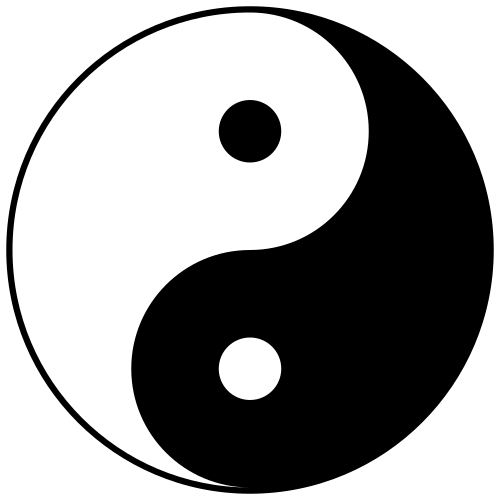
But to love me is better than all things.
Like everything else in Thelema, its highest aim is 2-in-1.
It’s doing your will—without lust of result.
It should now be perfectly simple for everybody to understand the Message of the Master Therion.
Liber II, The Message of the Master Therion
Thou must (1) Find out what is thy Will. (2) Do that Will with (a) one-pointedness, (b) detachment, (c) peace.
Then, and then only, art thou in harmony with the Movement of Things, thy will part of, and therefore equal to, the Will of God. And since the will is but the dynamic aspect of the self, and since two different selves could not possess identical wills; then, if thy will be God’s will, Thou art That.
There is doing or going, then there’s unadulterated openness and acceptance of whatever comes from that without a shred of resentment.
The two are in perfect balance and identity at the point of the triangle.
Another way of looking at it is that each of us is individual and has their own, individual will, thus their own particular course or path through eternity.
Equally and at the same time, though, there is only one aim that the Hadit in us has, and that’s union with Nuit. But Nuit is not a thing, and therefore Hadit’s hunger for Her can never be satisfied. He is never united with Her but is constantly uniting with Her, realizing one latent possibility within Her after another after another after another.
In other words the going is not toward a particular aim; it is toward All.
And the going is not of a particular entity; rather, substance passes over completely and without remainder into change or love, never stopping for even a moment just to be.
The path leading to this realization—where the individual is reconciled with the universe, where freedom is reconciled with necessity—is the spiritual system of Thelema, which can be described as magick or love under will.
Each action or motion is an act of love, the uniting with one or another part of “Nuit”; each such act must be “under will,” chosen so as to fulfil and not to thwart the true nature of the being concerned.
“Introduction” to the Book of the Law
The technical methods of achieving this are to be studied in Magick, or acquired by personal instruction from the Master Therion and his appointed assistants.
The method of Magick in this—and in all—Work is: “love under will.”
Djeridensis Comment on AL I.55-56
Technically, any practice or belief leading to this outcome could be considered “Thelemic,” whether Crowley thought of it or not.
Here is one such exercise. Right now, right at this moment, does it seem to you as though things could be other than exactly as they are? How do you know that? Can you prove that to yourself? Try, and take note of what happens.
But any exercise that is not leading toward that end—pure doing + pure indifference—is a desire for the conditioned. It’s the subordination of will to love or what Crowley called black magick.
It doesn’t mean it’s “evil”. From a conventional point of view, it’s usually considered quite good, actually (i.e., harmless). It just leads where all desire for conditioned things leads: dissatisfaction and resentment toward existence.
